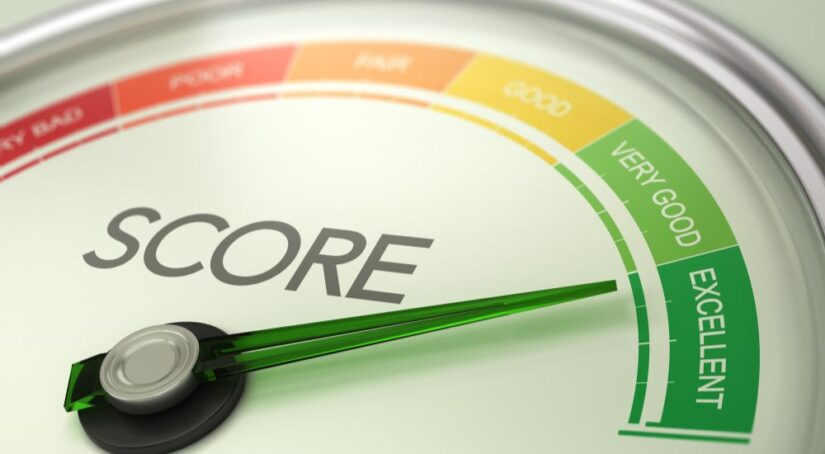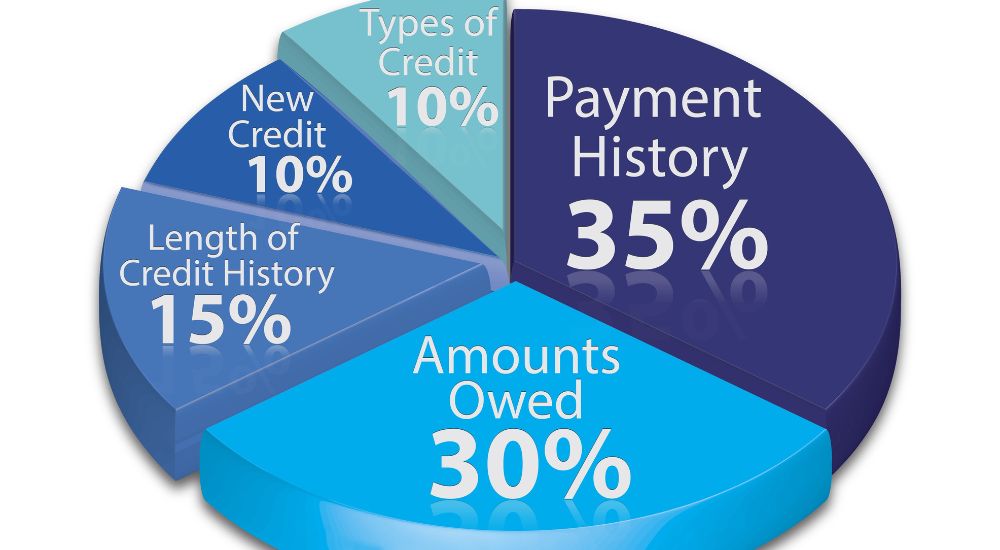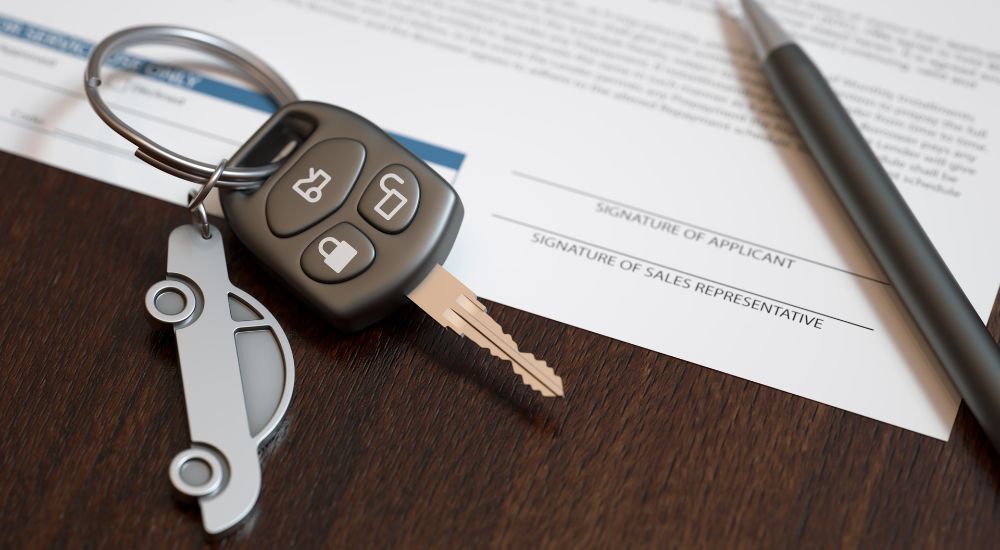If you’re looking for bad credit financing to help with purchasing a vehicle, then you might be interested in Buy Here, Pay Here dealerships or lenders that offer subprime loans. Knowing you have these kinds of options can ease the burden of buying a car with a low credit score or a limited credit history. However, it’s only one part of the solution; think of it as a first step toward a better situation in the future, but what you do after is just as important.
Securing bad credit financing can help you rebuild your credit and put you back on the road. But what does that mean? If your credit score and the entire financing process remain a mystery, knowing how to rebuild your credit or establish a strong credit history can seem impossible. In this case, like so many others, knowledge is power. Where dealerships focus on helping you find the perfect car, truck, or SUV, I’m here to give you insight into your credit score and the financing process so that your purchase works in your favor, making your next car-shopping experience even better.
Credit Scores: Adulthood in Three Digits
Your credit score is a three-digit number that will follow you throughout your adult life. It’s part of every major purchase, from buying a vehicle or a house to securing a line of credit. But what exactly is it, and why is it such a big deal?
A credit score is how lenders determine your creditworthiness or the likelihood that you will repay them if they approve the loan. Think of your credit score like a grade, where higher numbers are better because it signifies to potential lenders that you can responsibly manage your debt and you’re very likely to repay the loan on time and in full. Every creditor or lender determines what they consider a favorable credit score. That being said, the three major credit bureaus–Experian, Equifax, and TransUnion–follow a generalized set of guidelines. For example, credit scores fall into five general categories:
- Excellent: 800 to 850
- Very Good: 740 to 799
- Good: 670 to 739
- Fair: 580 to 669
- Poor: 300 to 579
These numbers give you a basic idea of where your credit score falls on the scale. However, it doesn’t answer one of the most essential and often forgotten questions. What factors are considered when the credit bureaus evaluate your score, and how do those factors compare to what a lender considers when evaluating your creditworthiness for a bad credit car loan?
The Many Factors of a Credit Score
Equifax, Experian, TransUnion, and even FICO look at several factors when determining your credit score. The three major credit bureaus evaluate these factors and typically provide insights into your credit history with detailed reports. In contrast, FICO doesn’t offer as many details and tailors its scoring according to the lender and their preferred credit bureau. As a result, your FICO score will likely vary with each situation, like when applying for a home loan with a lender that relies on TransUnion data versus a car dealership that relies on Experian.
The key takeaway is that your credit score fluctuates and varies according to the agency. However, every agency looks at the same factors to determine your creditworthiness. Knowing these factors gives you a better understanding of your score and how a bad credit car loan can make a positive impact. Let’s take a look at these factors…
#1 Payment History
Your payment history has the greatest impact on your credit score, carrying a weight of 35%. Lenders want to know if you have a history of making your payments on time before they approve the loan. Your payment history helps them determine the risk associated with the loan, particularly if you have a past littered with late payments or loan defaults.
A bad credit car loan can significantly impact your payment history, positively and negatively. Before you start the purchase process, verify that the lender reports any loan activity to the credit bureaus. This ensures your monthly loan payments work in your favor, establishing a history of on-time payments. Once you have a loan for your next vehicle, make all of your payments on time because your score will be impacted if you miss payments or default on the loan. If you’re worried you cannot make a payment on time, then contact your lender to work out a way to avoid having it negatively affect your credit.
#2 Credit Owed
The credit bureaus also look at your current debt or the amounts owed, with this category making up 30% of your score. This category is crucial because it shows a sense of self-control and responsibility over your available credit to potential lenders. For example, suppose you’ve maxed out three of your credit cards. This behavior signifies you might be overextended financially and that another line of credit, like an automotive loan, may be problematic.
The critical takeaway is to have the credit available when needed. The spending limit on any credit card isn’t meant as a challenge but as a guideline. Keep the amount you owe on each card under 30% of the available limit, and you’ll be in great shape. If you’re going to be looking for a car loan soon, then do your best to get the amount on any cards you have under this point to help improve your credit score.
#3 Credit History
In the realm of credit, time is your friend, which can be problematic for young professionals without established credit histories. The credit bureaus look at your credit history as a track record to prove you’re financially responsible. This category looks at the age of your oldest and newest accounts and how long it’s been since any activity. If you pay off a credit card, then it’s typically best to keep that card open as established credit history; closing it can negatively impact your score.
#4 New Credit
When you apply for bad credit financing, your credit score will take an immediate hit with every hard inquiry. These inquiries are inevitable in most cases because lenders must know your credit score to determine your eligibility. However, too many hard inquiries can negatively impact your score. Likewise, inquiries that lead to several new credit accounts over a short period are also detrimental and can lower your score. Why? To lenders, it signifies financial difficulty and that a borrower needs money quickly. There’s typically a window of two weeks to about a month where multiple inquiries can be grouped as one, which helps you limit the number of hard inquiries when applying for different car loans.
#5 Credit Types
Your balance of credit is the final factor in determining your credit score. This category evaluates the mix of different types of credit. For example, installment loans, like automotive loans or mortgages, are loans where you receive one lump sum to make a purchase and then repay the loan with interest over an extended period. A credit card is a form of revolving credit where the lender gives you a maximum spending limit that resets when you pay the balance. For example, you have a $5,000 limit on your Capital One card and have $500 in charges. Paying the $500 balance resets the available line of credit from $4,500 to $5,000.
Credit Scores and Other Factors With Bad Credit Financing
Your credit score plays a prominent role in most purchases, especially when buying a vehicle. While low credit scores can make the purchase process difficult, it doesn’t mean it’s impossible. Many dealerships work with lenders that offer subprime automotive loans that have broader eligibility requirements to help customers qualify and rebuild their scores.
Knowing your credit score and how it’s determined is critical to your future, letting you walk into a dealership armed with knowledge and information to make your purchase seamless. For example, have an idea of your credit score (without a hard inquiry) when you visit the dealership, but also bring in a check stub and be ready to discuss your employment history and debt-to-income ratio. These factors can establish your creditworthiness and determine the size of the down payment required to secure a loan.
By readily sharing this information and walking into the process with an open mind, you can set yourself up for a stronger financial future. While bad credit financing may not be what you had in mind, remember that these loans can work in your favor as you rebuild your credit score and prove you can responsibly manage your debt. Moreover, a bad credit car loan solves the issue of putting you behind the wheel of a reliable vehicle that ensures you can get to and from work, ultimately breaking the cycle of bad credit one payment at a time. This makes things even easier the next time you’re ready to shop for a car and need to find a loan.





